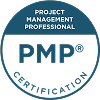
Let’s boost your business’s productivity & profitability.
How do we do it? Don't take our word for it; hear from our clients instead:
"I've had nothing but great experiences with Tech Turnaround! They are incredibly knowledgeable about any concept or issue our office has faced since transitioning to a cloud system. More importantly, their customer service is uncontested and they always go the extra mile to ensure that we understand the technology/software so that we can properly use it! This has meant them coming in-person to resolve issues and going office by office to make sure no one else is experiencing issues. Great company and great people all around!
"Patrick is very responsive and diligent, quickly identifying issues and presenting a clear plan to fix them. He’s always professional, reliable, and a pleasure to work with.
"I love the outstanding customer service Tech Turnaround provides! The team is always helpful, responsive, and goes above and beyond. I highly recommend them to anyone looking for reliable IT support.
Our IT services deliver stable systems, streamlined operations, and stronger performance, keeping businesses secure, adaptable, and profitable in a competitive market.
Welcome to Tech Turnaround
We Build Lasting Success Through Transformative IT Services
Your IT Should Change Your Business For The Better
It's Time To Unlock Productivity, Profitability, Security, And Predictability
Transformative IT
Consistently Reliable
Technology runs smoothly with minimal disruptions. Employees work without frustrating crashes, downtime is rare, and IT issues don’t interrupt productivity. Operations stay efficient, keeping customers and teams satisfied.
Reliable Security
Transformative IT services safeguard critical assets through proactive monitoring and layered protections. Threats are identified and neutralized before they escalate, giving leaders peace of mind and freeing employees to focus on advancing business goals.
Scalable Growth
Transformative IT services create flexible frameworks that grow with your company. Resources adapt seamlessly to changing demands, reducing friction while positioning businesses to capitalize on opportunities and outperform competitors in demanding environments.
Financial Clarity
Transformative IT services reduce unpredictable expenses by optimizing vendor contracts and aligning technology spending. Companies gain visibility into costs, improve EBITDA, and achieve stronger financial outcomes with IT that works as an investment.
static it
Inefficient Systems
Without transformative IT services, businesses struggle with outdated processes, wasted resources, and recurring disruptions. Teams lose focus, deadlines slip, and overall performance declines, creating frustration and eroding competitiveness in demanding industries.
Exposed Security
Without transformative IT services, companies face unmanaged risks, frequent breaches, and data loss. Leaders are forced into constant firefighting, distracting from growth priorities and leaving staff without the confidence needed to perform effectively.
Stalled Growth
Without transformative IT services, organizations lack the scalability to adapt. Expanding operations become constrained, opportunities are missed, and the business risks falling behind more agile competitors who leverage smarter, adaptable technology strategies.
Financial Instability
Without transformative IT services, expenses spiral due to poor vendor contracts and inefficient investments. EBITDA shrinks, profits decline, and leaders are left struggling to justify technology costs against declining performance.
Tech Turnaround Pillars of ROI-Centric IT
First Time Visiting Tech Turnaround?
Start by signing up for our email list.
It's Time To Turn Your Business Around
Our IT services improve predictability, productivity, and profitability by aligning technology with business goals. Companies gain stronger security, lower costs, and confidence knowing technology consistently supports growth and long-term success.
Increase profitability through smarter IT service alignment.
Boost productivity with reliable and efficient IT operations.
Gain predictability by eliminating disruptions and costly downtime.
Enhance security while reducing overall IT expenditures.
Our Process


Initial Discussion
The Tech Turnaround process begins with an initial informational discussion to thoroughly understand your business, operations, and IT goals, while giving you a clear chance to learn how we differ from other providers.


Proposal
The initial discussion guides how we serve your IT needs. Using your information, we deliver a deeper, customized service that aligns with your business goals and creates a budget-friendly pricing structure.


Due Diligence and Contracting
This stage is where you take the time to review Tech Turnaround and confirm we’re the right fit for your business. It’s your opportunity to evaluate our approach, expertise, and alignment with your goals.


Implementation
We are fully committed to providing complete project management support for your organization during implementation, ensuring timely and well-coordinated delivery of your new IT services.


Benefits Realization & Cost Savings Validation
Tech Turnaround will carefully validate savings through a full first-invoice review of your new services, comparing prior baseline costs with new billing to confirm tangible benefits for your organization.
Sign Up For Our Email Newsletter
Find Out How To Get More Out of The IT You're Paying For Right Now
Keeping your IT ahead of the curve is a full-time job (and then some). That’s why we make it a point to educate businesses on the principles of IT before they make a big decision. Our email list helps our clients and community stay ahead of IT decisions:
How to better protect your data with proven cybersecurity best practices.
How to budget for necessary, upcoming upgrades and projects that will benefit your business.
How properly-supported IT can increase productivity and, most importantly, reduce your overhead.

The More You Know...

What Is Strategic IT Sourcing?
In today’s business world, companies rely on their IT infrastructure for almost everything. And as business objectives evolve, an increased importance is placed on technology solutions. ...more
Virtual CIO Services
September 19, 2025•4 min read

SD-WAN vs MPLS: What Does My Business Need?
If your business operates in multiple locations, then you need network infrastructure to connect each office. Since geographical distance can affect the performance of data sent through the network, ...more
IT Services
May 07, 2021•3 min read

What Is Computer Network Optimization?
From something as simple as sending an email to more bandwidth-intensive operations like video conferencing, you rely on your network to carry out your daily operations. ...more
IT Services
April 30, 2021•4 min read
Turn Your Business Around Today
Tech Turnaround is here to help you do more. Call us at (832) 621-3640 or send us a message to get started.













